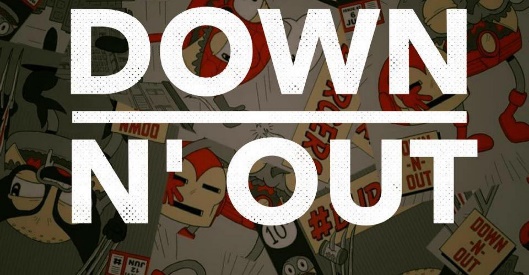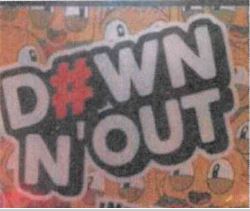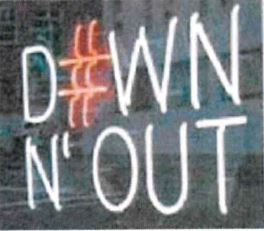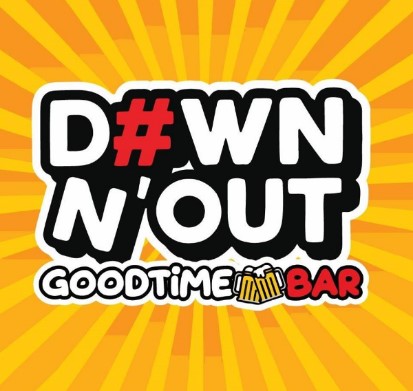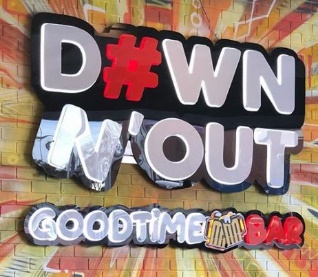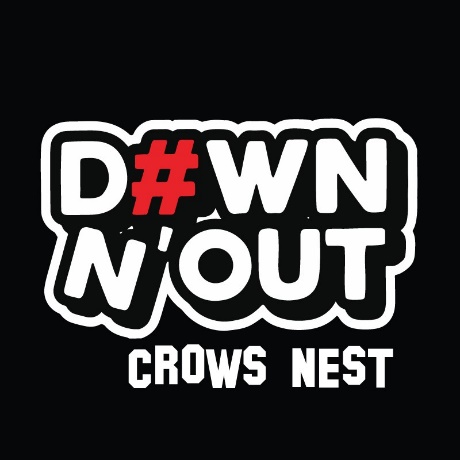FEDERAL COURT OF AUSTRALIA
In-N-Out Burgers, Inc v Hashtag Burgers Pty Ltd (No 2) [2020] FCA 772
ORDERS
Applicant | ||
AND: | First Respondent BENJAMIN MARK KAGAN Second Respondent ANDREW SALIBA Third Respondent | |
DATE OF ORDER: |
THE COURT ORDERS THAT:
Injunctions to restrain trade mark infringement
1. The first respondent, whether by itself, its directors, officers, employees, agents or otherwise, be restrained from infringing the In-N-Out Trade Marks, being those trade marks bearing Australian Trade Mark Registration Nos. 563986, 563987, 1190205 and 1345820, including, in particular, from using any of the trade marks listed in Annexure A to these orders in relation to any goods or services in respect of which the In-N-Out Trade Marks are registered.
2. The second and third respondents, and each of them, whether by themselves, their employees, agents or otherwise, be restrained from infringing each of the registered In-N-Out Trade Marks including, in particular, from using any of the trade marks listed in items 1 to 8 and 10 of Annexure A in relation to any goods or services in respect of which the In-N-Out Trade Marks are registered.
Injunctions to restrain ACL contraventions
3. The respondents, and each of them, whether by themselves, their directors, officers, employees, agents or otherwise, be restrained from using the names and logos DOWN-N-OUT, DOWN N’OUT or D#WN N’OUT, including in any of the forms shown in Annexure A, in connection with burgers or associated food and beverages, and related restaurant and take away services.
4. The second and third respondents, and each of them, be restrained from being knowingly concerned in any use by the first respondent of the names and logos DOWN-N-OUT, DOWN N’OUT or D#WN N’OUT, including in any of the forms shown in Annexure A, in connection with burgers or associated food and beverages, and related restaurant and take away services.
Injunction to restrain passing off
5. The respondents, and each of them, whether by themselves, their directors, officers, employees, agents or otherwise, be restrained from passing off their business as a business that is associated with the applicant by using the names and logos DOWN-N-OUT, DOWN N’OUT or D#WN N’OUT, including in any of the forms shown in Annexure A, in connection with burgers or associated food and beverages, and related restaurant and take away services.
6. Orders 1, 2, 3, 4 and 5 take effect 60 days from the date of these orders.
DNO social media
7. Within 60 days of these orders, the respondents:
(a) take all steps that are necessary to cancel or amend the account name and URL details for the following social media accounts to names and URLs that do not include DOWN-N-OUT, DOWN N’OUT, D#WN N’OUT, “downnout” or “DNO”:
A. Facebook pages:
i. https://www.facebook.com/downnoutofficial/
ii. https://www.facebook.com/downnoutwest/
iii. https://www.facebook.com/downnoutryde/
iv. https://www.facebook.com/downnoutwollongong/
v. https://www.facebook.com/DNOCrowy/
vi. https://www.facebook.com/downnoutHQ/
B. Instagram page <https://www.instagram.com/downnout_/>
(b) take all steps that are necessary to remove all social media posts from the accounts referred to in sub-paragraph (a) that feature any of the DOWN-N-OUT, DOWN N’OUT or D#WN N’OUT names and logos, including in any of the forms shown in Annexure A;
(c) file and serve an affidavit verifying compliance with the obligations in sub-paragraph (a) and (b) above.
DNO business name registration and domain name
8. Within 60 days of these orders, the respondents:
(a) take all steps that are necessary to cancel their domain name registration for <downnout.com.au>;
(b) take all steps that are necessary to cancel their business name registration ABN 44 579 781 639 and corporate name Down N' Out Burgers Pty Ltd ACN 625 170 121 or to amend them to names that do not include DOWN-N-OUT, DOWN N’OUT or D#WN N’OUT; and
(c) file and serve an affidavit verifying compliance with the obligations in sub-paragraphs (a) and (b) above.
Delivery-up of infringing material
9. Within 60 days of these orders, the respondents:
(a) deliver to the applicant’s solicitors for destruction, subject to the applicant’s undertaking noted in paragraph 11 below, all physical materials (other than physical documents including financial, taxation, legal, accounting and employment records, created and kept in the course of, or for the purposes of any business, trading or financial arrangements) including but not limited to signage, packaging, promotional material, advertising, brochures, pamphlets, merchandise, stationery and business cards in their possession, custody, power or control which bear or incorporate the names and logos DOWN-N-OUT, DOWN N’OUT or D#WN N’OUT, including in any of the forms shown in Annexure A;
(b) destroy all electronic materials (other than financial, taxation, legal, accounting and employment records, created and kept in the course of, or for the purposes of any business, trading or financial arrangements) including but not limited to images, concepts, plans, proposals or artwork for signage, packaging, promotional material, advertising, brochures, pamphlets, merchandise, stationery, business cards in their possession, custody, power or control which bear or incorporate the names and logos DOWN-N-OUT, DOWN N’OUT or D#WN N’OUT, including in any of the forms shown in Annexure A, provided that the respondents may also deliver to the applicant’s solicitors a USB or other storage device containing a copy of such electronic materials, to be held subject to the applicant’s undertaking noted in paragraph 11 below; and
(c) file and serve an affidavit verifying compliance with the obligation in sub-paragraph (a) and (b) above.
10. The respondents’ application for a stay of the above orders be dismissed with costs.
THE COURT NOTES:
11. The undertaking of the applicant, given to the Court through its counsel, that it will store, at its own expense, all material delivered up pursuant to order 9 above until the determination of any appeal from these orders, and return it to the respondents if an appeal is successful.
Note: Entry of orders is dealt with in Rule 39.32 of the Federal Court Rules 2011.
ANNEXURE A
Mark/Logo | |
1. | DOWN-N-OUT DOWN N’ OUT D#WN N’ OUT |
2. |
|
3. |
|
4. |
|
5. |
|
6. |
|
7. |
|
8. |
|
9. |
|
10. | <downnout.com.au> |
KATZMANN J:
Introduction
1 The parties in this case carry on business selling burgers and related goods. The applicant, In-N-Out Burgers, Inc, is a long-established American corporation. For many years it has owned and operated a growing number of burger restaurants in the United States and from time to time it has staged pop-up events in other countries, including Australia. In 2016 the second and third respondents, Benjamin Kagan and Andrew Saliba, inspired by the popularity and success of the applicant’s business, established first their own pop-up events and, later on, restaurants, settling on the name “Down-N-Out” for their business venture. About a year later they incorporated the business. Thereafter, the business was operated by the corporate entity, Hashtag Burgers Pty Ltd, the first respondent. Mr Kagan and Mr Saliba are the directors of the company. Earlier this year I held that, by using the names DOWN-N-OUT, DOWN N’OUT and D#WN N’OUT in connection with their burger business, the respondents infringed certain of the applicant’s registered trade marks, engaged in misleading or deceptive conduct in contravention of the Australian Consumer Law (ACL), and committed the tort of passing off: In-N-Out Burgers, Inc v Hashtag Burgers Pty Ltd [2020] FCA 193 (the principal judgment). For convenience, from now on I will refer to the infringing/misleading marks as the DNO marks and use the DNO acronym to refer to any other aspect of the respondents’ business operations. The DNO marks were annexed to the principal judgment and are annexed to the orders made today.
2 The question of which of the various remedies the applicant sought should be granted was deferred by consent. To the extent that the parties were in agreement, I made most of those orders, including a number of declarations, following the hearing last Friday. Subject to the success of any appeal from the principal judgment and subsequent orders, the applicant’s claim for pecuniary relief will be determined later, after a second hearing if necessary. This judgment is concerned only with three items: the form and extent of injunctive relief, the claim for an order for delivery-up and destruction of infringing material, and the respondents’ application for a stay of the orders pending the determination of a foreshadowed appeal. With the exception of the stay, the parties agree that, in the light of my findings, injunctive relief and orders for delivery-up and destruction are appropriate. The respondents continued to infringe the applicant’s registered trade marks and mislead consumers after the proceeding commenced and, indeed, continue to do so, although no stay has been granted. I have no doubt that they will not change their behaviour unless orders of this kind are made.
Injunctive relief
3 The applicant seeks the following orders:
Injunctions to restrain Trade Mark Infringement
7. The first respondent, whether by itself, its directors, officers, employees, servants, agents or otherwise, be restrained from infringing each of the registered In-N-Out Trade Marks including, in particular, from using any of the trade marks listed in Annexure A in relation to any goods or services in respect of which the In-N-Out Trade Marks are registered.
8. The second and third respondents, and each of them, whether by themselves, their employees, servants, agents or otherwise, be restrained from infringing each of the registered In-N-Out Trade Marks including, in particular, from using any of the trade marks listed in items 1 to 8 and 10 of Annexure A in relation to any goods or services in respect of which the In-N-Out Trade Marks are registered.
Injunctions to restrain ACL Contravention
9. The respondents, and each of them, whether by themselves, their directors, officers, employees, servants, agents or otherwise, be restrained from using the names and logos DOWN-N-OUT, DOWN N’OUT or D#WN N’OUT, including in any of the forms shown in Annexure A, in connection with burgers or associated food and beverages, and related restaurant and take away services.
10. The second and third respondents, and each of them, be restrained from being knowingly concerned in any use by the first respondent of the names and logos DOWN-N-OUT, DOWN N’OUT or D#WN N’OUT, including in any of the forms shown in Annexure A, in connection with burgers or associated food and beverages, and related restaurant and take away services.
Injunctions to restrain passing off
11. The respondents, and each of them, whether by themselves, their directors, officers, employees, servants, agents or otherwise, be restrained from passing off their business as a business that is associated with the applicant by using the names and logos DOWN-N-OUT, DOWN N’OUT or D#WN N’OUT, including in any of the forms shown in Annexure A, in connection with burgers or associated food and beverages, and related restaurant and take away services.
12. Orders 7, 8, 9, 10 and 11 take effect 60 days from the date of these orders.
DNO social media
13. Within 60 days of these orders, the respondents:
a. take all steps that are necessary to cancel or amend the account name and URL details for the following social media accounts to names and URLs that do not include DOWN-N-OUT, DOWN N’OUT, D#WN N’OUT, “downnout” or “DNO”:
A. Facebook pages:
i. <https://www.facebook.com/downnoutofficial/>
ii. <https://www.facebook.com/downnoutwest/>
iii. <https://www.facebook.com/downnoutryde/>
iv. <https://www.facebook.com/downnoutwollongong/>
v. https://www.facebook.com/DNOCrowy/
vi. <https://www.facebook.com/downnoutHQ/>
B. Instagram page <https://www.instagram.com/downnout_/>
b. take all steps that are necessary to remove all social media posts from the accounts referred to in sub-paragraph (a) that feature any of the DOWN-N-OUT, DOWN N’OUT or D#WN N’OUT names and logos, including in any of the forms shown in Annexure A;
c. file and serve an affidavit verifying compliance with the obligations in sub-paragraph (a) and (b) above.
DNO business name registration and domain name
14. Within 60 days of these orders, the respondents:
a. take all steps that are necessary to cancel their domain name registration for <downnout.com.au>;
b. take all steps that are necessary to cancel or amend their business name registration ABN 44 579 781 639 and corporate name Down N' Out Burgers Pty Ltd ACN 625 170 121 to names that do not include DOWN-N-OUT, DOWN N’OUT or D#WN N’OUT; and
c. file and serve an affidavit verifying compliance with the obligations in sub-paragraphs (a) and (b) above.
4 The applicant’s proposed form of injunction for trade mark infringement has two operative layers: the first is an injunction in the “general form”, that is to say an injunction to generally restrain the respondents from infringing the applicant’s registered trade marks, defined by the statutory rights rather than the infringers’ conduct. The second layer identifies the specific infringing acts.
5 The applicant’s proposal is modelled on the injunctions endorsed by the Full Court in Calidad Pty Ltd v Seiko Epson Corporation (No 2) [2019] FCAFC 168; 147 IPR 386 at [31]-[32] citing, in particular, Apotex Pty Ltd v ICOS Corporation (No 4) [2018] FCA 1316; 136 IPR 1 (a patent case) and Mitolo Wines Aust Pty Ltd (as trustee of the Mitolo Wine Trust) v Vito Mitolo & Son Pty Ltd (No 2) [2019] FCA 1140; 144 IPR 22 (a trade mark infringement case).
6 In Calidad at [44] the Full Court said that it is conventional for injunctions in general form to be granted in cases of trade mark infringement and made the following observations at [49]:
Where the infringer has already been found to have engaged in wrongful conduct, and is undoubtedly cognisant of the intellectual property rights in question, it is not unjust to expect that the infringer be the party at risk in respect of that person’s future conduct and acts, not the party whose known rights have already been infringed and vindicated by the court’s judgment. Thus, the imposition of an injunction in general form is not, in and of itself, an undue burden on the infringer. By the same token, the person whose intellectual property rights have been infringed should not be exposed to the risk of having to engage in continuing legal proceedings in order to vindicate, again, that person’s established rights against an established infringer.
7 Although it was not their initial position, the respondents now agree that an injunction in the general form should be made. They proposed an order that “[t]he respondents be restrained from infringing each of the registered In-N-Out Trade Marks”. In my view, however, the two-layered approach adopted by the applicant is preferable. It was the approach Besanko J took in Mitolo and it is the approach I intend to take.
8 Consequently, with one qualification I propose to grant the injunctions in the form the applicant seeks. The qualification relates to the inclusion of both “employees” and “servants”. These words are synonyms. One is therefore redundant and should be omitted. As “servants” is antiquated, it is this word that should go.
9 I am also persuaded that separate injunctions should be granted for the ACL and passing-off causes of action.
10 The respondents propose combining the ACL and passing-off restraint into a single form of injunction. Their proposal is that the Court order that:
The first respondent, whether by itself, its directors, officers, employees, servants, agents or otherwise, be restrained from using the names and logos DOWN-N-OUT, DOWN N’ OUT and D#WN N’ OUT in each of the forms shown in Annexure A, or any name or logo that is substantially identical to any of them, in relation to or in connection with burgers and associated food and beverages, and related restaurant and take away services, without the licence or authority of the applicant.
11 A similar form of order is proposed with respect to the second and third respondents.
12 The applicant opposes the respondents’ proposals on several grounds.
13 First, it submitted that it is conventional for each cause of action to be accompanied by its own injunction, citing Mitolo (orders 6 to 9). Second, it submitted that the reference to “substantially identical” in the respondents’ proposed order is inapt in the context of an injunction to restrain the ACL and passing-off causes of action. Third, it argued that, in the event of a successful appeal, their proposed form of injunction could unnecessarily complicate matters; for example, any success might be confined to one or other cause of action, thereby requiring the Full Court to attempt to “unbundle” the form of the injunction to reflect particular causes of action, rather than simply vacating the specific injunction relating to the particular cause(s) of action upheld on any appeal. Fourth, it insisted that the words “without the licence or authority of the applicant” are redundant as “[t]here is no prospect that In-N-Out will ever licence or approve the respondents[’] use of the impugned names and logos”.
14 These are all valid points which largely went unanswered.
15 The final area of contention relates to the applicant’s proposal for ancillary orders to prevent the use of the DNO names and logos in social media, business and domain names.
16 The respondents did not dispute that it would follow from the principal judgment that the names and URL details for the social media accounts and the business name registration would need to be amended or cancelled. The respondents merely argued that the ancillary orders are redundant. That might be so. Having regard to their past conduct, however, there is reason to think that, without them, the respondents might not take such steps. It is therefore prudent to make the ancillary orders.
The delivery-up and destruction order
17 The applicant seeks an order for delivery-up and destruction of infringing materials.
18 The Court’s power to make such an order was not in question and is beyond doubt: see, for example, Solarhart Industries Pty Ltd v Solar Shop Pty Ltd (No 2) [2011] FCA 780; 282 ALR 43;92 IPR 197 (Perram J); Mitolo at [19]. A delivery-up order is appropriate in order to remove from the respondents all “sources of temptation”: cf. Solarhart at [13]-[15].
19 As I indicated earlier in these reasons, there was no dispute in the present case about the appropriateness of the order and, although there was initially a dispute about the time for compliance, the parties have reached agreement about that, too. An order in the agreed form will therefore be made.
The stay application
20 Flagging their intention to appeal, the respondents applied for a stay of the injunctions, the ancillary orders, and the orders for delivery-up/destruction and costs. In support of their application they rely on two affidavits, one from Mr Saliba filed on 6 May 2020 and sworn on 13 May 2020, and another from Victoria-Jane Otavski, the respondents’ solicitor, filed on 5 May 2020 and sworn on 15 May 2020.
21 The application is strenuously opposed. The applicant relies on a 365-page affidavit filed on 15 May 2020 and sworn on 28 May 2020 by Elizabeth Jane White, a partner of Baker McKenzie, the applicant’s solicitors.
22 Two affidavits were filed in reply, one from Mr Saliba, which was filed on 22 May 2020 and sworn on 2 June 2020, and one from Ms Otavski, which was filed on 22 May 2020 and sworn on 26 May 2020.
23 All of the affidavits were read at the hearing. None of the deponents was required for cross-examination.
24 The relevant principles are well-established and not in dispute. I set out those principles below. They are drawn from the following authorities: Alexander v Cambridge Credit Corporation Ltd (receivers appointed) (1985) 2 NSWLR 685 (CA) at 693–695; Powerflex Services Pty Ltd v Data Access Corp (1996) 67 FCR 65 (FC) at 66; Phillip Morris (Australia) Pty Ltd v Nixon [1999] FCA 1281 (FC) at [17]; Red Bull Australia Pty Ltd v Sydneywide Distributors Pty Ltd t/as Sydneywide Bottlers Australia [2001] FCA 1750 at [6] (Hely J); Wooldridge v Australian Securities and Investments Commission [2015] FCA 349; 106 ACSR 551 at [8]–[18] (Middleton J); and Maher v Commonwealth Bank of Australia [2008] VSCA 122 at [17]–[27] (Dodds-Streeton JA, Redlich JA agreeing).
25 The Court has a broad discretion and special circumstances are not required. But the judgment is not to be treated as provisional. The successful party is entitled to its benefit and the presumption that it is correct. Consequently, the applicant for a stay carries the burden of demonstrating that a stay is appropriate. A stay should not be granted unless the appeal is at least arguable, although speculation as to its prospects of success is usually inappropriate. Without more, however, an arguable case is not sufficient justification for a stay. In the exercise of the discretion, the court will weigh up such factors as the balance of convenience and the competing rights of the parties, including, in particular, any prejudice to the parties that would be caused by granting or refusing a stay. A substantial factor in favour of a stay is the risk that, without a stay, the appeal would be rendered nugatory.
26 The respondents argued that the stay should be granted because otherwise an appeal would be rendered nugatory; there is a real risk that the respondents would not be restored to their position; the appeal is genuine and based on arguable grounds with reasonable prospects; appropriate undertakings are offered, namely to prosecute the appeal, to maintain accounts and not to destroy records; the applicant would retain the benefit of the judgment in the declarations; and the balance of convenience favours the grant of a stay.
27 No specific argument was advanced in support of a stay of the costs order and I see no reason why that order should be stayed, no matter what results from the balancing process. There is no reason to think that the applicant would not be able to repay the respondents if that becomes necessary: Powerflex at 66G. Although the applicant is a foreign company, no application for security for costs was ever made.
28 But what of the other orders? Have the respondents made out an appropriate case that they should be stayed?
29 It is convenient to begin with the appeal point. No notice of appeal has yet been filed. Annexed to Ms Otavski’s first affidavit is a draft notice of appeal, which she described as a “working draft” subject to further revision and refinement, including by senior counsel. As she put it, the focus of “an” appeal would be the Court’s finding of deceptive similarity between the competing marks.
30 Ms Otavski was not the solicitor for the respondents at the time of trial. She only took instructions in late 2019. In her affidavit she deposed to having since read, “amongst other things, the evidence filed and served in the proceedings, the parties’ statement of agreed facts, the parties’ written submissions and the Court’s reasons for judgment”. Having read this material, Ms Otavski said that she was satisfied that an appeal would have reasonable prospects of success.
31 Ms Otavski’s first affidavit also annexed a copy of an email to Baker McKenzie dated 16 April 2020 in which the stay application was first raised. In that email she proposed that the parties agree to a stay pending the filing of an application for leave to appeal and, if leave were granted, the disposition of the appeal, on the undertaking of the respondents by their counsel, that during the period of the stay they will:
a. prosecute any application for leave to appeal, and any subsequent appeal, expeditiously;
b. continue to make and maintain proper and complete records and will not destroy any records in relation to its or their business.
32 The respondents did not try to persuade me of the strength of their foreshadowed appeal. With one exception, as the notice of appeal is currently drafted, their case is apparently based on the arguments that were put at trial and which I ultimately found unpersuasive. The exception relates to the second of the two grounds of appeal and, more particularly, the contention that, with respect to the applicant’s passing-off case, I erred by applying the Full Court’s judgment in ConAgra Inc v McCain Foods (Aust) Pty Ltd (1992) 33 FCR 302 and, since the United Kingdom has taken a different approach, ConAgra should now be overruled. Whatever may be the merits of that contention, the point was not pursued at trial since I was bound to follow ConAgra.
33 The applicant did not suggest that the appeal was not genuine and I am prepared to accept that the respondents intend to appeal. In his first affidavit Mr Saliba said that he wants to “pursue the opportunity of an appeal” and that Mr Kagan told him that he does, too.
34 With respect to Ms Otavski, I would give little weight to her opinion on the prospects of success of an appeal. That is because, although she said that she had been admitted as a solicitor for some 12 years and had “consistently worked in the area of litigation and dispute resolution” in both this Court and various State courts, she said nothing about her experience or expertise in this kind of litigation.
35 Be that as it may, I accept that the proposed grounds are arguable. The applicant did not argue otherwise and, by consent, I granted leave to appeal on the day the stay application was argued.
36 I turn now to the argument that, without a stay, the appeal would be nugatory and that, if the appeal were to succeed, there is a real risk the respondents would not be restored to their former position.
37 Mr Saliba’s evidence was that, absent a stay, the name of the business will have to be changed and that that will be a costly exercise.
38 He deposed that the task of changing the name will require him and Mr Kagan to dedicate a significant period of time to at least the following tasks:
reviewing and considering potential new names and logos;
instructing external consultants to generate and modify any graphics in respect of new marks and logos;
selecting and ordering new internal and external signage for the business premises;
designing new merchandise such as food-packaging to ensure that any new mark and logo is adequately depicted and/or represented;
redesigning the DNO website and social media pages, including obtaining new addresses for those electronic pages and cancelling existing ones if it is not possible to change or amend them;
engaging with staff and suppliers to explain the name and mark change;
updating various governmental authorities in relation to the name and mark change, including implementing any necessary changes to corporate or business name registrations;
engaging with suppliers and partners in connection with the change of name and marks and requesting that the records (bills, invoices and the like) are amended to reflect the change;
designing and deploying advertising and marketing schemes to existing or loyal customers and new customers;
deleting all publications from the social media accounts that depict the DNO marks and logos;
devising and implementing new marketing and advertising strategies; and
seeking legal advice to ensure that any new name and marks do not infringe any existing intellectual property rights.
39 While he was not able to be precise about the time this would take, he estimated it would be in the order of at least eight weeks. He postulated that it could be even longer because of the COVID-19 pandemic. He estimated that changing the name and destroying or delivering up the relevant material would result in a loss of stock worth at least $11,000 to $12,000 and an external IT consultant may have to be engaged in order to ensure the destruction of the electronic copies. He said the stock comprised interior and exterior signage depicting DNO trade marks; merchandise such as clothing worn by staff and available for purchase; food packaging, “serve-ware”, and menus; and flyers and other promotional and decorative materials used during in-store promotions. Based on his experience and “knowledge of existing third party suppliers”, Mr Saliba predicted that the costs incurred “in connection with a new name, logo and marks for that new name to achieve a basic level of market recognition and reputation” would amount to $39,000 to $61,000.
40 Mr Saliba expressed the opinion that, once the name change was complete and on the assumption that an appeal were to succeed, it would not be “financially or commercially practicable, if possible at all” to revert to the DNO name, although that would be his and Mr Kagan’s preference. He gave three reasons:
(1) the amount of money that would be wasted in the delivery-up and/or destruction of the DNO material, and the loss resulting from “lost search engine optimisation and Google ranking activities undertaken and costs incurred to date”;
(2) the waste of management time invested in designing, developing, producing, installing, and rolling out a new brand; and
(3) the mixed messages that would be sent to customers by changing names twice, which would cause commercial uncertainty in what he expected “will be difficult economic and operating conditions in the fast-food and beverage industry”.
41 Mr Saliba said that much of the commercial success and reputation the business had built up would be “significantly diminished or even lost”. In this respect he pointed to the fact that in September and October 2019 respectively (while judgment was reserved) the DNO premises at Liverpool Street in the City of Sydney (the CBD restaurant) had won the NSW award for “Best Burger Bar” and the national award in the same category presented by the Restaurant and Catering Association of Australia. He also reported that the awards were announced on the Association’s website and that the Association had tweeted its congratulations on its Twitter account.
42 The preference Messrs Saliba and Kagan may have for the current name is no justification for a stay.
43 There is no doubt that the name of the business will have to be changed if a stay is not granted. And I accept that refusing the stay will be inconvenient for the respondents and will come at some cost, both in time and money. But I am not persuaded that the respondents would suffer any great hardship in the absence of a stay. Nor am I satisfied that, without a stay, the appeal would be rendered nugatory.
44 First, like Red Bull, this is not a case in which the subject-matter of the appeal will be extinguished unless a stay is granted. Nothing would prevent the respondents resuming the use of the DNO name if an appeal were to succeed (cf. Melbourne Chinese Press Pty Ltd v Australian Chinese Newspapers Pty Ltd [2003] FCA 997 at [12] (Moore J)). Whether or not it would be financially or commercially feasible to do so would depend on how much the respondents invested in a new name. As the applicant submitted, they could always use the Hashtag Burgers name, which is already associated with the business, and website, either as a temporary measure or permanently.
45 Second, no factual foundation was laid for the opinions Mr Saliba expressed about the potential costs. Ms White’s evidence indicates that it is most unlikely that the costs are anywhere near the amounts he quoted. Indeed, I conclude that they are likely to be considerably less than the lower figure of $39,000 provided by Mr Saliba.
46 For a start, although there was no indication of this in Mr Saliba’s affidavit in chief, all but one of the DNO restaurants are already operating under a new name. Hashtag Burgers now has only one restaurant, the CBD restaurant, and a pop-up in Marrickville run out of a van, which was launched after the principal judgment was published and while the stay application was pending. Ms White’s evidence reveals that the two other DNO restaurants that were operating at the time of the hearing (in Ryde and Crows Nest) and a third that was opened after the hearing (in Castle Hill) are in new hands and their name has changed to “Plan B Works”. A post on the DNO Sydney Facebook page in mid-April 2020 informed a customer that “the other stores aren’t affiliated with us anymore [but were] just using our name and apparently copying our specials”. A post on the DNO Instagram account informed customers that “the only official Down N Out is in the CBD for now”. That same day there was an announcement on Facebook that DNO “are looking at popping up in Marrickville for COVID season”. It seems from posts on the DNO Facebook page and Instagram accounts that the Marrickville pop-up was launched on 7 May 2020, although in his affidavit in reply Mr Saliba said that it commenced operations the previous day.
47 An investigation conducted at the behest of the applicant disclosed that the Ryde, Crows Nest and Castle Hill restaurants had not been operated by any of the respondents in the period between 20 and 22 March 2020. As at 22 April 2020 the Facebook pages for DNO Ryde, Crows Nest and Castle Hill were no longer accessible.
48 But for Ms White’s evidence, there is every reason to think that the Court would have been kept in the dark about these matters although they were plainly relevant to the extent of the harm the respondents might suffer if a stay were not granted.
49 The evidence given by Ms White indicates that most of the figures Mr Saliba gave are inflated, in some cases considerably so. The figures given by Mr Saliba were as follows:
Description | Amount or range | |
1. | New business name registration | $500 – $1,000 |
2. | New website domain registration | $500 – $1,000 |
3. | External consultant designs for creation of new logos, marks and associated social media | $5,000 – $10,000 |
4. | External signage | $4,000 – $6,000 |
5. | Internal decorations and fit-out | $2,000 |
6. | Branded food packaging and serve-ware items | $3,000 – $4,000 |
7. | Other promotional material | $5,000 – $6,000 |
8. | Legal and accounting costs | $4,000 – $5,000 |
9. | Facebook marketing advertisement spend | $5,000 – $8,000 |
10. | Instagram marketing advertisement spend | $5,000 – $8,000 |
11. | Search engine optimisation charges | $5,000 – $10,000 |
TOTAL | $39,000 – $61,000 |
50 While no supporting documentation or explanation was given to justify the legal and accounting costs, an estimate of $4,000 to $5,000 does not strike me as exaggerated. The applicant did not contest the estimates for the registration of a new business name and website domain, but it rightly pointed out that those costs could be avoided entirely if the respondents were to operate their business under their existing registered company name, Hashtag Burgers, using the Hashtag Burgers website at www.hashtagburgers.com.au.
51 Mr Saliba’s estimate of $5,000 to $10,000 for creating new logos, marks and associated social media accounts was challenged as “prima facie high”. I have no idea whether it is or not. In the absence of any foundation for these figures, however, I am not prepared to accept them. As the applicant submitted, to establish the likely costs the respondents could have provided the invoices issued by Jonathan Paine, the graphic designer retained to create the various DNO marks and logos. There being no evidence that these invoices have been lost or destroyed, I infer that the respondents’ failure to rely on them means that the invoices would not assist their application.
52 Ms White’s evidence demonstrated that cafe barriers like that used by the respondents’ CBD restaurant are available online at a cost of between $260 and $545 and that the actual costs incurred by the respondents to redesign and rewire the neon sign used at their first pop-up at the Sir John Young Hotel, which was the same as, or very similar to, the neon sign in the CBD venue, was $300, indicating that Mr Saliba’s estimate of $4,000-$6,000 for external signage was greatly exaggerated.
53 Mr Saliba’s estimate of the costs for internal decorations and fit-out was also inflated. The impression the respondents sought to achieve with their décor was of a dive bar. The walls are made of exposed bricks and decorated with cartoons and posters. The DNO marks appear on few items. Ms White’s evidence was that 1000 custom-printed A3 posters on premium and gloss paper can be purchased at a cost in the order of $285-$365. The cost of the DNO light box sign installed above the kitchen in the CBD venue is likely to have been similar, since the documents produced by Tablou, the designer collective used by the respondents, show that (excluding shipping) the cost of the light box sign for the Penrith restaurant was $285.
54 Mr Saliba’s estimate of branded food packaging and “serve-ware” items appears inflated, too. Ms White’s investigations suggest that the placemats are unlikely to cost more than about $285 to $365. Contrary to the inference the Court was presumably invited to draw from Mr Saliba’s affidavit, Ms White’s evidence shows that the menus at the CBD restaurant do not carry the DNO name and would therefore not have to be changed.
55 The evidence also indicates that the only branded clothing worn by staff or available for sale consists of T-shirts which, based on their appearance and Ms White’s evidence, are likely to have been inexpensive to purchase and are therefore likely to be inexpensive to replace.
56 In his affidavit in reply, Mr Saliba attempted to explain the differences. He said that he had reviewed the websites from which Ms White obtained some of her costings and further commented:
Based on my experience in the food and beverage industry and in engaging with suppliers of designing, printing and promotional materials, costs typically advertised on supplier websites:
A. are the lowest costs and may not always be for products of sufficient quality (e.g. signs not being adequately weather proof or durable for outdoor use);
B. do not include costs of full or multiple colour or double-sided options; and
C. typically omit details or information of additional or ancillary costs which can include design charges, artwork setting and proofing or charges calculated by reference to the number of characters or colours used.
57 Mr Saliba does not disclose the extent of his experience in the food and beverage industry and the evidence indicated that both he and Mr Kagan were neophytes when they entered the burger business in about 2015. This suggests that his opinion is based on limited experience and, in any event, it is likely to be affected by self-interest. I therefore give it little weight.
58 The likely cost of all the items could have been proved by invoices and/or receipts for items procured in the past. Mr Saliba did not say in either affidavit that those documents had been destroyed or were no longer available. Once again, I infer from his failure to rely on them that they would not have assisted the respondents’ case. That inference is bolstered by the documents produced by Tablou on subpoena. I referred above to the cost of the light box in the Penrith restaurant. Other documents produced by Tablou and included in Ms White’s affidavit show that the actual cost of the overall fit out, including non-branded items, of the respondents’ original CBD and Penrith restaurants was estimated at just $2,777 and $2,301 to $4,076 respectively.
59 Many of the costs Mr Saliba estimated would be incurred by reason of the name change are likely to be incurred in any event. For one thing, the expenses associated with producing branded food packaging and serve-ware items are plainly recurrent.
60 Third, the inconvenience and costs are substantially mitigated by the applicant’s willingness to undertake to the Court to arrange for all physical material that the respondents are required to deliver up, that is, items or components of items bearing the DNO branding, together with a USB containing the electronic materials in the respondents’ possession that would otherwise need to be destroyed, to be stored until the resolution of any appeal and returned to the respondents if the appeal is successful.
61 Fourth, there is no evidence that refusing a stay will have a material impact on the respondents’ trade or revenue. To the contrary, Mr Kagan has made public statements which suggest otherwise. He was quoted in articles about the result of the litigation in the online city guide, Broadsheet, on 28 February 2020 and another digital city guide, Concrete Playground, on 11 March 2020 saying (without alteration):
We have always done our own thing and we are disappointed with the outcome, however we know that our fans will continue to support us regardless of what our name is. We may be down at the moment but we sure as sh#t aren’t out.
62 Fifth, there is no reason to believe that the respondents would lose much in the way of goodwill because they were obliged to change their name. The goods and services would not need to change. Neither would any other aspect of the business. Apart from removing the name and logos, no other change would be required to the décor of the restaurant or the food truck or to the get-up. A post on the DNO Sydney Facebook page on 13 May 2020 announced that the food truck was getting an upgrade. As the applicant submitted, in that event it would be a simple matter to paint over the DNO mark. The change of name would provide the respondents with a new marketing opportunity.
63 Indeed, until recently the respondents seemed resigned to renaming their business. They used their social media platforms to solicit suggestions for a new name, offering free burgers for life to the winning suggestion. The clear inference from the evidence is that the respondents had issued a media release informing the market that, as a result of the judgment, they would be changing the name. As the applicant submitted, not following through with the name change would lead to mixed messages. Moreover, those who were enticed to respond to the respondents’ call for suggestions for a new name by the prospect of free burgers for life would doubtless feel disappointed, if not duped.
64 In the principal judgment I found that the applicant’s brand, “In N’ Out Burger”, had a substantial and significant reputation in Australia but observed that there was no evidence to indicate that the same could be said of the respondents’ business. The evidence adduced on the stay application does not prove otherwise. Accordingly, the loss of reputation the business may suffer does not support the grant of a stay: Melbourne Chinese Press at [9] (Moore J). Besides, whatever reputation the DNO brand may have was acquired in the face of the applicant’s objections and by appropriating elements of the applicant’s branding with the intention of confusing consumers. In any event, the respondents will have 60 days before the injunctions take effect which should be sufficient time to alert the market, particularly since the respondents embarked on that course weeks ago.
65 I now turn to the other relevant considerations.
66 I am cognisant of the fact that the applicant has no restaurants in Australia. Its physical presence in this country to date has taken the form of temporary “pop-up” restaurants. Mr Bevan placed significant emphasis on these facts during the hearing of the stay application. Nonetheless, I held that the applicant would be entitled to damages under the “user principle” (see [288]-[299] of the principal judgment). The amount may well be difficult to quantify but, at this stage at least, there is no reason to think that it would be less than the cost to the respondents of changing the DNO name.
67 Neither side offered an undertaking as to damages. Although the applicant had no obligation to do so, that fact is relevant to the exercise of the discretion to grant a stay: Red Bull at [9]–[10].
68 On the other hand, the respondents have not offered the applicant anything to secure or protect it against intermediate damage should the appeal fail, such as a security or bank guarantee: cf. Red Bull at [17]; Westaflex (Aust) Pty Ltd v Wood (1990) 18 IPR 168 at 169 (Gray J). And, while the respondents are likely to suffer some irrecoverable loss if the appeal succeeds and a stay is not granted, if the appeal were to fail and the injunction lifted, the applicant is likely to suffer “unquantifiable loss”: Red Bull at [19]. As in Red Bull, even if the loss were quantifiable, the respondents have not established that its current financial position is such that it would be good for the money if it were significant. Ms White’s evidence discloses that Hashtag Burgers has no significant assets. Mr Saliba’s evidence is that the COVID-19 pandemic is putting financial pressure on the business. And neither Mr Kagan nor Mr Saliba has seen fit to reveal his financial position.
69 What is more, given the respondents’ failure to comply with discovery orders, which was unexplained at trial and remains unexplained, I have no confidence in the undertakings the respondents have offered.
70 Of course I could grant a stay on condition that the respondents lodge security but in the absence of any such offer to do so or any indication that they would be in any position to do so, it seems to me that that would be an exercise in futility.
71 Finally, although the applicant brought the action to protect its commercial interests, the case involved questions of consumer protection and therefore has “a public interest dimension” which militates against the grant of a stay: Red Bull at [18]. I note the respondents’ submission that the applicant would have the benefit of the declarations which they did not seek to stay. This might go some way towards addressing the public interest dimension but it provides no protection for the applicant’s commercial interests and is of little assistance to the consumer who is unaware of the Court’s orders.
72 Taking all relevant matters into account and giving them due weight, I am not satisfied that the respondents have made out an appropriate case for a stay. Accordingly, their application must be refused. Costs should follow the event.
I certify that the preceding seventy-two (72) numbered paragraphs are a true copy of the Reasons for Judgment herein of the Honourable Justice Katzmann. |
Associate:














